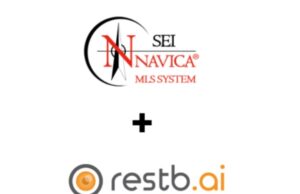REP. PANETTA LEADS INTRODUCTION OF THE HOUSING ACCESS IMPROVEMENT ACT TO SUPPORT AFFORDABLE HOUSING ON CENTRAL COAST
WASHINGTON, DC – RealEstateRama – Rep. Jimmy Panetta (CA-20) authored and introduced the Housing Access Improvement Act along with Reps. Salud Carbajal (CA-24), Judy Chu (CA-27), Barbara Lee (CA-13), Zoe Lofgren (CA-19), Anna G. Eshoo (CA-18), Ted W. Lieu (CA-33), and Eric Swalwell (CA-15). This legislation would increase the statutory cap of Project Based Vouchers (PBVs) from 20 percent to 50 percent, ultimately allowing housing agencies to spur new locations where housing vouchers are redeemable. Project basing gives developers a guarantee of a future source of stable income for a development, and in markets facing a housing shortage, this is one of the only tools housing authorities have to spur the construction of new, quality units.
“Californians living on the Central Coast are acutely affected by high housing costs, with more than a quarter of renters in my district paying over half of their income on housing and utilities,” said Rep. Jimmy Panetta. “Increasing the PBV cap with my Housing Access Improvement Act would incentivize the construction of new and affordable housing units for low-income households. Renters desperately need relief from skyrocketing prices, especially as wages remain stagnant, and the resulting increase in supply from this legislation would effectively lower prices and free up disposable income for our tenants.”
“The lack of affordable housing is a crisis in the South Bay and in communities across the country,” said Rep. Zoe Lofgren. “I’m proud to join my colleagues to introduce the Housing Access Improvement Act, which will encourage the construction or renovation of new, affordable units. Increasing the Project Based Voucher statutory cap is a straightforward change that will help local housing agencies meet the soaring demand for affordable housing. The Santa Clara County Housing Authority has already successfully used a higher project voucher cap, and this legislation recognizes the impact the county’s innovation has had.”
“Southern California has a housing affordability crisis, and we need to work together at all levels of government to deliver more supply and more affordability,” said Rep. Judy Chu. “Project-Based Vouchers (PBVs) play a crucial role in enabling housing authorities to build new affordable units, which is why the Housing Access Improvement Act is so important. In my district, Pasadena has proven using PBVs to build permanent supportive housing can reduce homelessness and ensure our neighbors have an affordable and stable place to call home.”
“The Housing Access Improvement Act speaks to California’s deep—and growing—crisis of affordable housing,” said Rep. Barbara Lee. “Renters in Alameda County need to earn almost forty-eight dollars per hour—3.2 times the local minimum wage—to afford the local average monthly rent. People of color disproportionately bear this burden. The Housing Access Improvement Act will unleash local agencies to help build more affordable homes to house more people. I am proud to be an original cosponsor of this bill.”
“Rising housing costs in the Bay Area continue to force more and more middle- and working-class residents to leave the area in search of affordable housing. This is unacceptable,” said Rep. Anna G. Eshoo. “I’m proud to introduce legislation today with my colleagues to expand the use of Section 8 Project-Based Rental Assistance, which not only will help people afford homes but also promotes the construction of new affordable housing that our region so urgently needs.”
“Providing this extra flexibility to housing authorities will allow them to better serve the needs of the Central Coast,” said Rep. Carbajal. “I am proud to join my colleagues in crafting policy that helps more people gain access to affordable housing.”
“We know from experience that a commitment of PBVs is an essential part of making an affordable housing project financially feasible,” said Jenny Panetta, Executive Director of the Housing Authority of the County of Santa Cruz. “It’s exciting to be at the forefront of efforts to increase affordable housing production. We are incredibly grateful for Congressman Panetta’s leadership on this straightforward yet significant policy change to ensure PHAs can continue to play an important role in stimulating new affordable housing development locally, statewide, and nationally.”
“Affordable housing continues to be an issue for the residents of Monterey County, and Congressman Panetta’s Housing Access Improvement Act is one huge step in the right direction to increase the production of housing units and keep people stably housed,” said Mary L. Adams, Chair of the Monterey County Board of Supervisors. “Our neighbors with fixed incomes, like senior citizens, are even further disparaged in our current rental climate and we must do everything we can to ensure equitable access to housing for everyone. Raising the cap of project-based vouchers and allowing Public Housing Authorities to customize their programs to fit their communities takes into consideration that there is no one-size-fits-all solution to the housing crisis; we have to customize the approach that best fits the needs of Monterey County and we should allow the local authorities to decide what that looks like.”
“Ensuring that families do not have to sit on waitlists for an exorbitant amount of time is critical to securing housing for vulnerable populations locally and nationwide,” said Linda Mandolini, President of Eden Housing. “We too often see families being turned away from affordable housing because of discrimination and a lack of availability. This piece of legislation would provide an ongoing and permanent source of affordable housing for those in-need and push forward the construction of housing projects.”
“Representing over 100 PHAs throughout the State of California, the California Association of Housing Authorities (CAHA) strongly supports the Housing Access and Improvement Act and respectfully urges Congress to pass this bill to increase the Project Based Voucher (PBV) cap from 20% to 50%,” said Roberto Chavez, President of the California Association of Housing Authorities (CAHA). “For decades, the tight rental market has impacted PHA voucher utilization rates throughout the Country. Approving an increase to the PBV cap can aid in the deconcentrating of poverty, encourages private investment, and increases the supply and preservation of affordable housing.”
“As a Moving-to-Work agency, SCCHA has already adopted a 40% threshold for project-basing our vouchers. We learned that in a really tight real-estate market, this allowed us to better meet the housing needs of our families,” said Preston Prince, Santa Clara County Housing Authority (SCCHA) Executive Director. “Rep. Panetta’s proposed legislation will give all Public Housing Agencies, not just Moving-to-Work agencies, the opportunity to create innovative solutions at the local level to meet each communities’ respective needs.”
“The Council of Large Public Housing Authorities is pleased to support the legislation sponsored by Congressman Jimmy Panetta (D-CA) that would increase the percentage of authorized units a public housing agency may use for project-based assistance,” said Sunia Zaterman, Executive Director of the Council of Large Public Housing Authorities. “This legislation would give housing authorities greater flexibility in administering their housing vouchers for vulnerable, low income individuals and families and allow those individuals and families greater choices in obtaining needed housing.”
“The California State Association of Counties (CSAC) is pleased to support the Housing Access Improvement Act,” said Siskiyou County Supervisor and CSAC President Ed Valenzuela. “By increasing the Project-Based Voucher cap, the bill will provide county officials with another tool to provide much-needed affordable housing for our California residents.”
“The PBV Program has successfully eliminated barriers that families with special needs face in the private rental market and provide the financial security of a 20-year contract between the LACDA and the owner to make developments financially feasible. With its extensive PBV utilization, the LACDA projects to reach its cap on or before December 31, 2024,” said LACDA Executive Director Emilio Salas. “The LACDA is anticipating committing PBVs to several major housing developments in the next three (3) years, including developments in partnership with the Department of Veterans Affairs, California’s Project Homekey, and supportive housing for patients discharged from hospitals or other care facilities. Passage of legislation that would further increase the percentage cap on project-based rental assistance would continue providing affordable housing to special needs populations who would otherwise face barriers in finding suitable housing in the private rental market.”
The Housing Access Improvement Act will take several steps to support affordable housing in CA-20 and nationwide:
Benefits to Families
- A project-based voucher assigned to a unit guarantees the unit will be available for and rented to voucher recipients. This addresses the issue of voucher-rich areas with limited housing stock.
- Since properties can usually utilize PBVs in only a portion of the total units at a project, projects utilizing PBVs serve tenants with a mix of incomes while preserving low-income families’ ability to choose to move to a location that better suits them without losing rental assistance. This prevents concentration of poverty.
- This bill preserves clients’ housing choice and does not commit a resident to the PBV unit—people can still move around on the open market after the initial lease term (typically one year). At that time the tenant may move to any other unit in the open market, and may continue to receive rental assistance through a tenant based voucher. Upon turnover the project-based unit will be rented to the next eligible low-income household waiting for assistance.
Benefits to Increased Housing Development
- Project basing gives developers a guarantee of a future source of stable income for a development, which can be integral to the financing package that makes constructing or rehabilitating affordable housing possible.
- In markets facing a housing shortage, this is one of the only tools housing authorities have to spur the construction of new, quality units.
Endorsements: California Association of Housing Authorities (CAHA), Mayors and CEOs for US Housing Investment, Los Angeles County Development Authority (LACDA), California State Association of Counties (CSAC), National Association of Counties (NACo), Council of Large Public Housing Authorities (CLPHA), Santa Clara County Housing Authority (SCCHA), Housing Authority of the County of Santa Cruz, Eden Housing, Monterey Bay for Eden Housing, and Monterey County.
###












